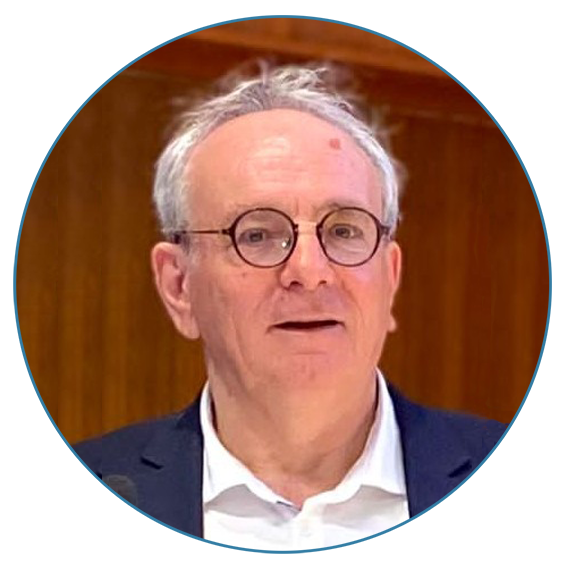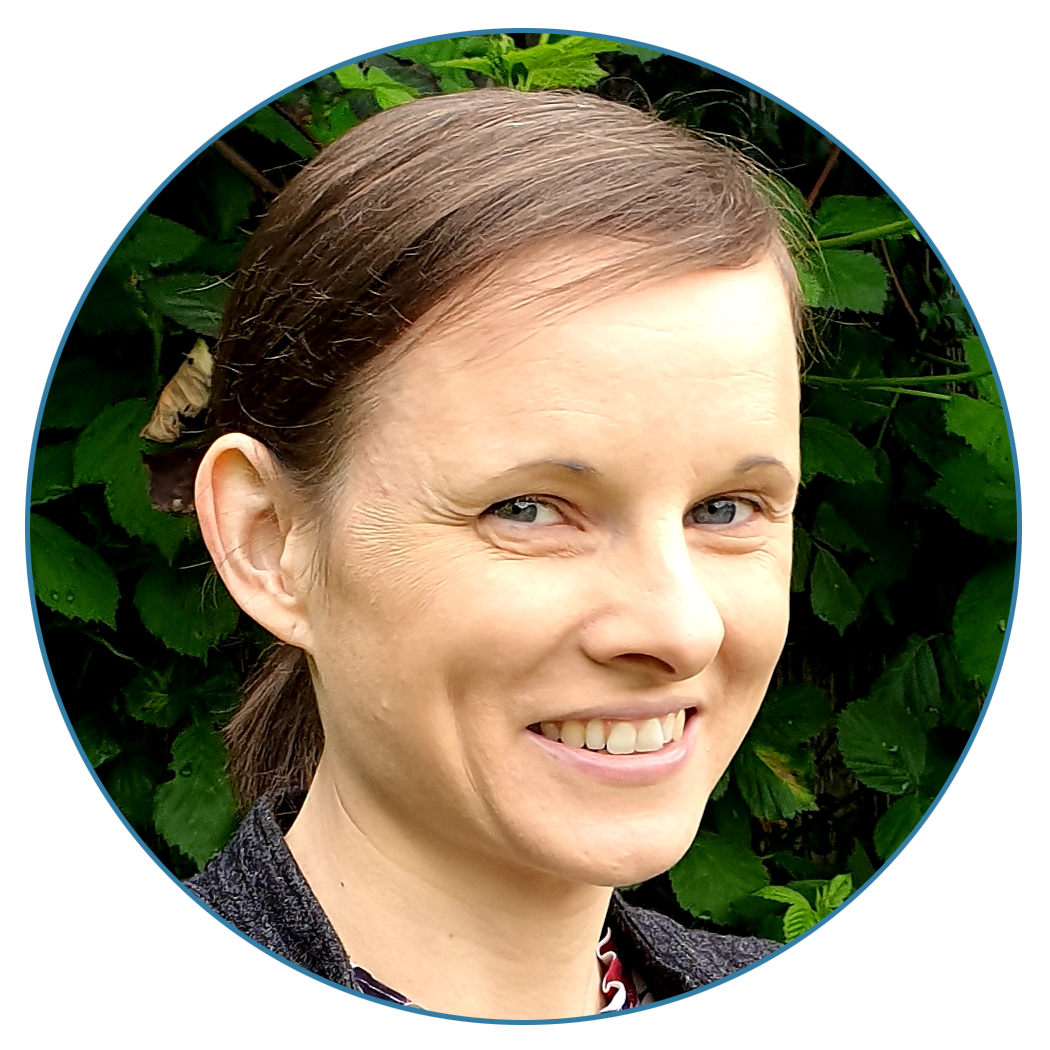
Søren Hvilsted
Hvilsted Consult, Denmark Grundtmanns vej 4,
Hørsholm
Title:
Can biobased polymers replace their fossil analogues?

Jean-Francois Gerard
Ingénierie des Matériaux Polymères UMR CNRS 5223 – Université de Lyon / INSA Lyon
Title:
Safety and Sustainability Challenges Facing Phenolic Resins: Advances and Substitutions

Igor Lacík
Polymer Institute of the Slovak Academy of Sciences, Slovakia
Title:
Alginate-based microcapsules for cell therapy in diabetes treatment

Katja Loos
University of Groningen, The Netherlands
Title:
Unleashing the potential of enzymes for green furan-based polymer synthesis

Robert Luxenhofer
University of Helsinki
Title:
Poly(2-oxazoline)s: From an attractive alternative to PEG to an exotic speciality and back?

Christine M. Papadakis
TUM School of Natural Sciences, Physics Department, Technical University of Munich, Germany
Title:
What high pressure can teach us about block copolymer micelles with a thermoresponsive shell

Wojciech Pisula
Lodz University of Technology, Poland
Max Planck Institute for Polymer Research, Germany
Title:
Ordered conjugated polymers for organic electronics

Sandra Schlögl
Polymer Competence Center Leoben GmbH, Austria
Title:
(De)Activating Bond Exchange Reactions in Dynamic Polymer Networks
Igor Lacík
Igor Lacík is the research professor working at the Polymer Institute of the Slovak Academy of Sciences in Bratislava, Slovakia. From 2010 till 2018 he was the director of this institute. From 2011 till now he is the Head of Department for biomaterials research (http://www.polymer.sav.sk/OVB). His primary research topics are kinetics of free radical polymerization of water-soluble monomers, implantable microcapsules for immune-protection of transplanted cells in diabetes treatment, and hydrogel-based biomaterials. His long-term research stays include Sydney University (with Prof. Robert G. Gilbert), CNRS Strasbourg (with Dr. Françoise Candau), Vanderbilt University (with Prof. Taylor G. Wang), and Georg-August University Goettingen (with Prof. Michael Buback). He publishedaround 150 publications.
He leads and/or is involved in numerous national and international projects, among others contracts with BASF SE (Germany), Otsuka Pharmaceutical Factory Inc. (Japan), Juvenile Diabetes Research Foundation (USA), Chicago Diabetes Project (USA). He has been awarded by prestigious national awards, lately Crystal Wing for Medicine and Science (2015), Personality of the Science and Technology (2018), The Slovak Academy of Sciences Medal for support of the science (2022), Dionyz Ilkovic Medal for contribution to physical and chemical sciences (2022), and ESET Science Award as a Laureate in the category Outstanding Scientist in Slovakia (2023). Since 2024 he serves as the president of Polymer division IUPAC and the member of the IUPAC Science Board.
Katja Loos
Katja Loos is Professor at the Zernike Institute for Advanced Materials of the University of Groningen, holding the chair of Macromolecular Chemistry and New Polymeric Materials. She currently serves as the President of the European Polymer Federation for the period of 2023 to 2025.
She specialized in Organic Chemistry and Polymer Chemistry during her university studies at the Johannes Gutenberg Universität in Mainz, Germany and the University of Massachusetts in Amherst, USA. She moved into the field of Enzymatic Polymerizations during her doctoral research at the University of Bayreuth, Germany and the Universidade Federal do Rio Grande do Sul, Porto Alegre, Brasil. After a postdoctoral research stay at Polytechnic University in Brooklyn, NY, USA she started an independent research group at the University of Groningen.
Katja Loos pioneered the field of enzymatic polymerization, especially the biocatalytic synthesis of polysaccharides and polyamides, and the synthesis and self-assembly of PVDF containing block copolymers. Already early in her career Katja Loos was awarded two travel scholarships of the German Academic Exchange Service (DAAD) and she received the very prestigious Feodor Lynen Fellowship award of the Alexander von Humboldt Foundation to conduct her postdoctoral research. During her independent research career, on the basis of her unique approach in combining modern polymer synthesis, (macro) molecular self-assembly, and utilization of the arising structures the Netherlands Organisation for Scientific Research (NWO) has awarded her the prestigious VIDI grant in 2009 and VICI grant in 2014 and the German Research Council (DFG) the Eleonore Trefftz guest professorship within the scope of its excellency initiative. Among others she was awarded the Friedrich Wilhelm Bessel Research Award of the Alexander von Humboldt Foundation, the IUPAC Distinguished Women in Chemistry and Chemical Engineering Award and the Team Science Award of the Dutch Research Council (NWO). In 2023 she received the title of Knight of the Order of the Netherlands Lion.
Katja Loos is a Fellow of the Dutch Polymer Institute (DPI) and the Royal Society of Chemistry (RSC).
Wojciech Pisula
Professor Wojciech Pisula holds a PhD in Chemistry, which he obtained in 2005 at the Max Planck Institute for Polymer Research in Mainz. In 2015, he received his habilitation in Material Science from the Technical University of Darmstadt in Germany. In the same year, he was appointed as Associate Professor in the Department of Molecular Physics at the Lodz University of Technology in Poland, and later promoted to Full Professor in 2020. Wojciech Pisula has been serving as an Editor for Synthetic Metals since 2016 and as Editor-in-Chief for Electronic Materials since 2020. His research interests primarily focus on the physical and chemical aspects of self-organizing semiconductors and their functionality. He has authored over 230 publications in peer-reviewed journals resulting in an H-Index of 82. In addition to his academic career, Wojciech Pisula also joined Evonik Industries in 2006, where he currently holds the position of Director at the Applied Technology Silicone.
Sandra Schlögl
Sandra Schlögl currently heads the division “Chemistry of Functional Polymers” at the Polymer Competence Center Leoben and finished her habilitation (post-doctoral lecturing qualification) in Macromolecular Chemistry at Montanuniversitaet Leoben in 2017. Her research centers on stimuli-responsive polymers, dynamic polymer networks, photochemistry in polymers and surface functionalization of polymers. She has already published more than 160 papers in peer-reviewed journals and has received several national and international awards (e.g. EARTO Innovation Award,
Paul Dufour Award) for her research.
Christine M. Papadakis
Prof. Papadakis is the head of the Soft Matter Physics Group at Technical University of Munich, Germany. Her group conducts research in experimental polymer physics, e.g. on polymers of complex architecture, responsive polymers, block copolymers in solution and thin film geometry as well as polymer nanoparticles and gels for medical purposes. At this, the group uses mainly scattering methods with light, X-rays and neutrons. Particular emphasis is on in-situ and time-resolved measurements during rapid changes of the environment to characterize switching mechanisms. Neutron spectroscopy elucidates the underlying interactions.
After studying physics at the Universities of Mainz and Grenoble, she completed her doctorate in 1996 at the University of Roskilde, Denmark. Following a postdoctoral stay at Risø National Laboratory, Roskilde, Denmark, she did her habilitation at the University of Leipzig in 2003 and became a professor at the TUM Physics Department. She has been a member of proposal committees at several large-scale facilities and was editor-in-chief at Colloid & Polymer Science, Springer Verlag. She has published more than 150 papers.
Robert Luxenhofer
Robert Luxenhofer completed his PhD in 2007 at the TU München in polymer chemistry developing a novel polymer functionalization approach since developed further by Serina Therapeutics to introduce the first-in-human poly(2-oxazoline)-drug conjugates. As a postdoc with Alexander V. Kabanov at the University of Nebraska Medical Center, he discovered ultra-high loaded drug formulations and investigated structure dependent endocytosis of polymer amphiphiles. Returning to Germany in 2009, he started to investigate polysarcosine and polypeptoids as biomaterials at the TU Dresden. In 2012, he joined the Julius-Maximilians Universität as an Associate Professor, where he continued working on polypeptoids and ultra-high drug formulations, but also started investigating biofabrication and 3D printing using melt electrowriting. In 2019, he joined the University of Helsinki as a Full Professor. He holds 10 patents and is co-founder of two companies focusing on developing novel polymers for medical applications.
Søren Hvilsted
Søren Hvilsted is Professor Emeritus from Technical University of Denmark (DTU). He earned his doctoral degree in polymer chemistry at DTU and spend 1,5 years as post doc with the late Prof RW Lenz at University of Massachusetts in Amherst. Upon his return to Denmark in 1980 he took a position as head of the analytical department of Scandinavian Paint and Printing Ink Research Institute. In 1986 he moved to the polymer group at Risø National Laboratory in Roskilde, DK, as a senior research fellow. At Risø he developed the LC azobenzene polyester family that together with Prof PS Ramanujam was tuned to be the ultimate material for volume holographic storage of information. In 2000 he earned the polymer chemistry chair in Department of Chemical and Biochemical Engineering at DTU, where the holographic material was further optimized by use of controlled radical polymerization and click chemistry. The two latter techniques were also employed in development of well defined, functional nanoparticles intended for medical applications and in the preparation of fluorine containing membrane materials for potential fuel cell applications. In the fourth topic novel chemistry to silicone-based dielectric elastomer transducers was elaborated.
In recent years he was heavily involved with the Swedish research program Sustainable Polymers and Transition Pathways (STEPS) based at University of Lund.
For almost two decades he was president of the Danish Polymer Society (IDA Pol), and still the Danish representative to European Polymer Federation. Recently he served four terms as Panel 5 (Organic Chemistry and Materials) member at European Research Council in Bruxelles. He has published >220 peer reviewed papers and holds 10 patents.
Christian Paulik
Univ. Prof. DI Dr. Christian Paulik heads the Institute for Chemical Technology of Organic Materials at Johannes Kepler University (JKU) in Linz. He earned his Ph.D. in Chemical Engineering at JKU Linz, specializing in polymer science. He worked in the polymer industry from 1995 to 2013, holding various research and international research management positions in the Borealis group. In 2010, he transitioned back to academia, becoming Full Professor at JKU Linz.
His various research interests include polymers, polymerization, catalyst technology, additives, recycling, sustainable chemistry, and high-pressure biotechnology. He actively contributes to the scientific community by organizing conferences and serving on committees (e.g., Hermann Francis Mark honor medal committee). His current research focuses on the polymerization and structure-property relations of polyolefins and specialty polymers, with an emphasis on recycling and sustainable practices. He is also active as an editor of the International Journal of Biobased Plastics.
Christian Paulik chairs the board for the JKU Open Lab in Chemistry, giving school pupils the opportunity to dive into the world of chemistry and attract them for natural sciences.
Since October 2019, he also acts as the Scientific Director of the Competence Center CHASE, focusing on sustainable solutions for the processing industry and guiding the strategic development of the CHASE Research Program, building bridges between academia and the chemical industry. With summer 2024 Christian Paulik also took up the responsibility as Scientific Head of the Energy Technology department of the Energieinstitut at the JKU Linz.
